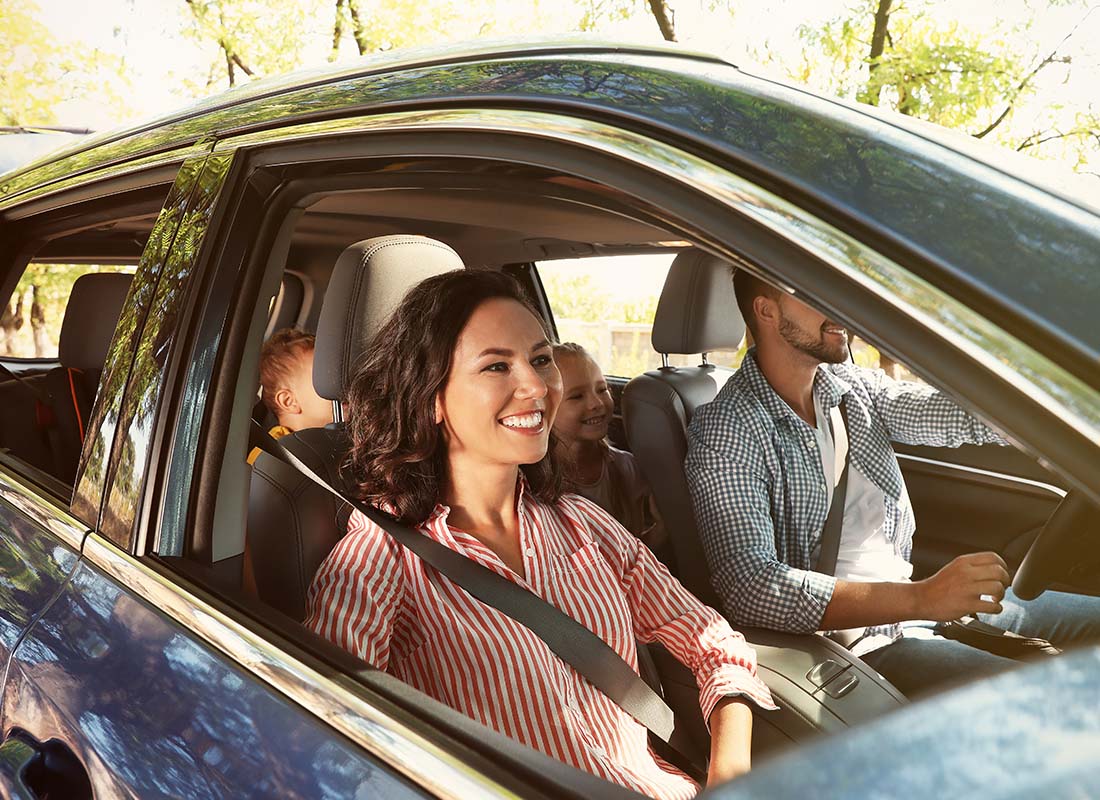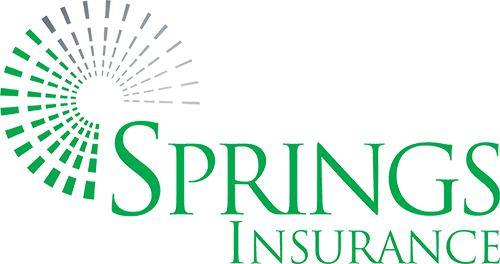
Find out how auto insurance works to protect you and your vehicle on the road.
Get coverage to protect the vehicle you rely on.
Your car or truck is often your biggest asset aside from your home—we’ll help you get the insurance coverage you need at a price you can afford. Auto insurance helps to protect against potentially crippling financial losses and the sheer inconvenience of being without transportation.

It’s easy to get distracted while driving. All it takes is an incoming text message, a fussy baby, or changing the radio station and your eyes are off the road long enough to crash into the slowing vehicle in front of you. As an owner/operator of the vehicle, you may be held financially responsible for any bodily injuries caused as a result of the accident.
Bodily injury liability covers your legal liability for a covered accident that involves injury to another person, up to the limit of liability you select. Purchase enough coverage to protect your assets should a claim be brought against you or if you are sued. You should also consider purchasing an excess liability policy which may provide additional limits of liability.
When involved in an auto accident, you and your family may be financially responsible for any damage caused by your vehicle to someone else's property. The amount required, if any, can vary by state.
The property damage portion of your auto insurance policy protects you if your car damages someone else's property, such as another car, a fence, or a building. In some instances, you may be able to choose your coverage limit, or it may be a standard amount dictated by the insurer or local laws.
Depending on the severity of the injuries suffered in an automobile accident, whether caused by you or by the other vehicle, it's not uncommon for healthcare costs to run into the thousands of dollars, with a large portion being out-of-pocket expenses not covered by your health plan.
Medical payments coverage or Personal Injury Protection, depending on where you live, can help cover some medical expenses and funeral expenses of covered drivers and passengers after an accident. The exact requirements, limits, and coverage can vary by state, so it's important to understand what's required where you live.
What happens when the driver who hit you doesn't have enough liability coverage? Or, even worse, they take off? Research has shown that this happens more than you might expect. If you’re in a collision with someone who is uninsured or underinsured, you can be left to pay out-of-pocket for damages and medical expenses not covered by the other driver.
Uninsured/underinsured motorist damage coverage may compensate you for bodily injury and lost wages caused by an uninsured motorist, a hit-and-run driver, a driver whose automobile insurance company is insolvent, or a driver who has not purchased enough coverage to pay for damages.
Your automobile can be a fairly costly investment – one that is exposed to many potential losses caused by weather related events, theft, and other circumstances that may be out of your control.
Physical damage coverage can protect your vehicle if it is damaged in an accident (collision coverage), is damaged by something other than a collision (comprehensive coverage) with a vehicle or object or if your vehicle is stolen. This coverage is optional if your vehicle is paid in full, but it is coverage you should consider if you want to fully protect your vehicle.
When your vehicle is being repaired or replaced due to a covered loss, you may have to rent a vehicle to get you to and from your daily responsibilities without any interruption. Vehicle rental can get expensive, especially over an extended period of time.
Rental coverage/ loss of use is an inexpensive option you can add to your auto insurance policy to pay for the cost to rent a temporary replacement vehicle or the cost of public or private transportation if your vehicle is ever in an accident. This coverage is available in a variety of daily limits.
What is the minimum coverage required?
Not all car insurance is created equal. Some auto insurance policies simply meet legal requirements. This means your insurance may cover the damage you cause to other cars in collisions. However, auto insurance in some no-fault regions may also cover your own car or truck. Additionally, the law usually states that policies must cover some medical bills that result from a car crash.
How does bodily injury liability cover you in a car accident?
If you are in an auto accident that involves injury to another person, bodily injury liability coverage helps cover your financial responsibility for any bodily injuries as a result of the accident, up to a selected limit.
What is uninsured/underinsured motorist coverage?
If an uninsured or underinsured motorist causes an auto accident, uninsured/underinsured motorist coverage may compensate you for bodily injuries and lost wages.
Protect your vehicle with auto insurance add-ons.
Other auto insurance policies go further and protect your car or truck if it is stolen, damaged or destroyed by fire, or damaged in a car accident that doesn’t involve any other vehicles. You may also get policies that protect your car if it is damaged by an uninsured driver.
Are you looking for auto insurance to cover your car or truck? Contact us to discuss coverage options.
Let’s Get Started
Auto Insurance Information Request
"*" indicates required fields
Don’t like forms? Call one of our locations today.
